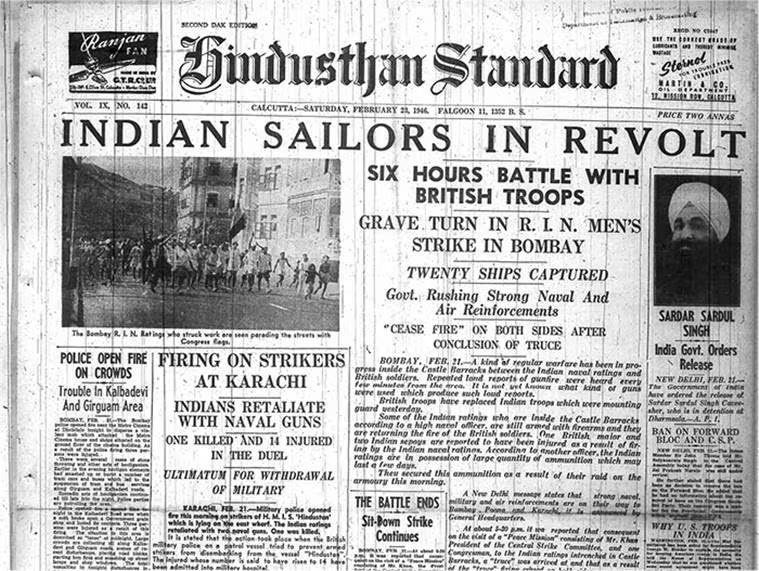
52. A forgotten glorious chapter in Indian history
I am not sure who said this, but whoever said it has indeed told a truth we must try to understand and follow.
“Do you really believe... that everything historians tell us about men or about women is actually true? You ought to consider the fact that these histories have been written by men, who never tell the truth except by accident.”
And suppose we attempt to understand India's history, not just ancient history, since there are many versions, but also the last 70 years. In that case, I must honestly admit that what we discover is relatively lacking.
Today’s historians have overlooked many historical figures and numerous incidents, if they can even be called that. And believe me, my bold statement is valid if only you, dear reader, take the time to get involved and do a little research yourself.
In his book, Bishwanath Bose recounts a firsthand account of the 1946 Royal Indian Navy uprising, revealing many previously hidden facts.
He fought for his country and was declared a mutineer by the British government. Even after independence, he was treated poorly, along with many fellow soldiers, by the government that succeeded them.
He was one of many soldiers who were never recognized as freedom fighters. It was not until 1973, 26 years later, that the government of India officially acknowledged those who had served in the Royal Indian Navy and participated in the mutiny.
The so-called authentic account writers (read historians), whose books are taught in schools and colleges, have entirely ignored the 1946 Royal Indian Navy (RIN) uprising, which shook the foundations of the British Raj and forced the British government to hasten the process of independence.
This uprising was termed mutiny, and it was led by the sailors, resulting in a complete paralysis of the Royal Indian Navy.
Historians also overlook the fact that if it were not for the Indians, the grandeur of the British would not have survived the onslaught of the Japanese in Southeast Asia.
Our students should be taught that the Indian National Army (INA), the Bengal famine, and, above all, the Second World War made independence inevitable.
Indian soldiers, sailors, and airmen, along with businessmen and laborers, played a significant role in the British victory on the Burma front, which led to the emergence of a new militant nationalism. Hindu-Muslim unity was observed during those times, as protests were led collectively by both groups.
They opposed the trial of INA prisoners. The heroic strike of the RIN in February 1946 played a crucial role in pressuring the British government in London to take notice and withdraw from India as soon as possible.
The RIN mutiny shook the Raj to its core, and it was no coincidence that then-British Prime Minister Clement Attlee announced on February 19, 1946, the decision to send a cabinet mission to India.
This event was perhaps the single most significant factor in accelerating the process of independence, as it marked the culmination of the decline of imperial authority.
Surprisingly, neither the Congress nor the Muslim League sympathized with the ranks of the RIN due to concerns about Communist Party involvement. It is on record that the then presidents of the Congress and the Muslim League showed rare unity and offered their assistance to the police in arresting the mutineers.
And what Gandhi had to say was that "the mutiny had set a bad and unbecoming example for India, and a combination of Hindus, Muslims, and others for violent action was unholy.
He said that if the RIN men used peaceful methods and fully informed him of their complaints, he would ensure they were "redressed."
For the British, the events in Bombay and Karachi revived memories of the 1857 mutiny, yet there is a curious silence and elusiveness surrounding this glorious episode in history books.